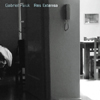 Inspired by the low-volume, "marginal" sounds that make up the unconscious bed music of urban living, Paiuk creates a tape collage of musique concrète for the microsound/lowercase generation.
Inspired by the low-volume, "marginal" sounds that make up the unconscious bed music of urban living, Paiuk creates a tape collage of musique concrète for the microsound/lowercase generation.
Res Extensa isolates the small sounds of mechanical interference occurring for most people daily, from toaster-hum and PC-error to the faraway rumble of aircraft. His goal is not so much broad re-contextualization, but, as the title might suggest, a kind of extension past individual association towards the creation of what he calls "a sensitive whole," where sounds are "exposed in their affective characters and our connections to them." A bit cryptic in his desires, Paiuk is asking for something more than what a standard concrète composer would: not that the toaster be recognized as a familiar word within an unfamiliar sentence structure (and all of the old associations that this new placing carries over or leaves behind), but that the toaster be semi-recognized as maybe-a-toaster-as-I-know-it but also maybe this or that device or field of audible energy that I interface with enough that it does not feel alarming in juxtaposition.
The layered construction of Res Extensa suggests that sounds be left to flail and mingle in an interzone between immediate, "physical" reaction and direct cognitive interpretation. For me, the appeal of microsound or lowercase music or related things like The Conet Project has always worked on a similar level: the fusing of fields of small, not-immediately-jarring noise interferences (or the "glitch"-opposite: forced interferance of silence or faulty connection) to a level of dynamism and nuance where listening is less geared towards a 'picking-out' of sounds or the tracking of particular extremes but to the establishment of a kind-of limbo state, a suspension among past-recognizable forces seen now as more forces or fields of energy than anything solid.
The Conet Project dramatizes this idea by isolating literal phantom frequencies, radio energy with indirect aim and obscured potential. In comparison, Paiuk’s piece is a more comforting and relatively lush soundworld, its spaces small and inviting and its pace a slow unraveling of disturbances that never trump each other. Paiuk seems to imply that any overt drama in Rec Extensa comes from projected sources, and in this sense, the piece is some most unlikely ‘body music’ existing, as it tries to, in the realm of the senses with a barrier (however slightly or necessarily permeable) against all that might allow these sounds to fade into meaning.
samples:
Read More

